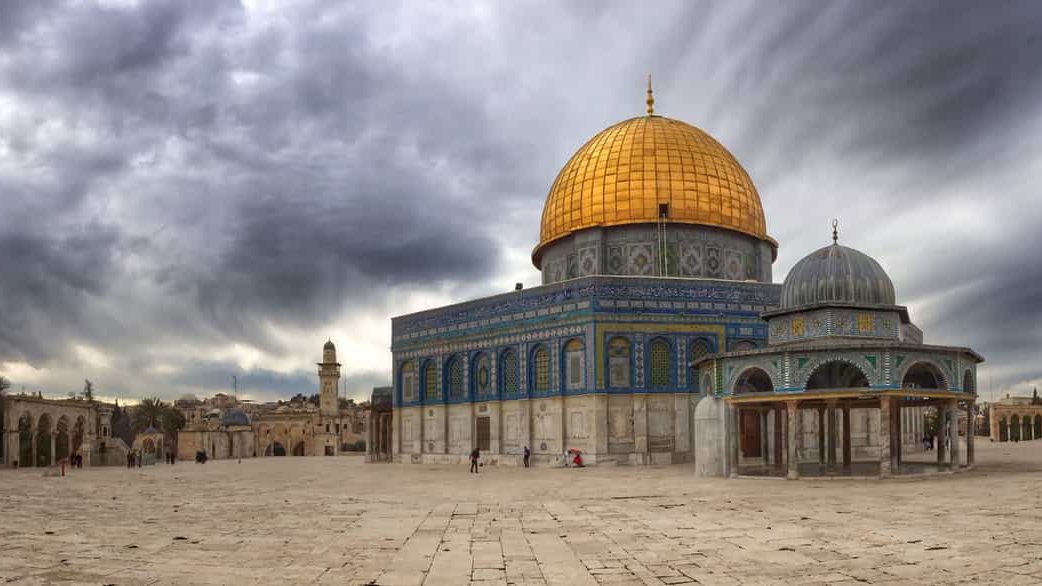Israeli Minister’s Visit to Temple Mount Provokes Widespread Condemnation, UNSC Emergency Session
The UN Security Council is reportedly planning an emergency session to debate Tuesday’s visit to the flashpoint Temple Mount site in Jerusalem by a far-right Israeli minister. National Security Minister Itamar Ben-Gvir made his early morning visit to the site, which is sacred to both Jews and Muslims, despite warnings from Hamas, the armed Palestinian Islamist group that controls the Gaza Strip. No date has been set for the UNSC meeting.
The stroll on the mount did not result in any immediate violence but provoked strong condemnation across the Arab and Muslim worlds.
Nabil Abu Rudeineh, a spokesman for Palestinian President Mahmoud Abbas, called Ben-Gvir’s visit to Al-Aqsa “a challenge to the Palestinian people, the Arab nation, and the international community.” He said, “The Israeli authorities’ attempts to change the existing historical and legal reality in Al-Aqsa by perpetuating its temporal division by dividing it spatially are rejected and doomed to failure,” and warned that Jerusalem and its holy sites are “a red line that cannot be crossed.”
Palestinian Prime Minister Mohammed Shtayyeh, in the Palestinian Authority’s weekly cabinet meeting, called Ben-Gvir’s visit to the holy site a “serious challenge to the feelings of the Palestinian people.”
Hazem Qassem, a spokesman for Hamas, vowed that the Palestinian people would “continue defending their holy places and Al-Aqsa Mosque.”
Jordan summoned Israeli Ambassador Eitan Surkis to deliver a strongly worded protest over the visit. “The storming of Al-Aqsa Mosque by an Israeli minister and violating the mosque’s sacredness is a condemned and provocative action and represents a stark violation of international law,” Jordanian Foreign Ministry spokesman Sinan Majali said in a statement.
The Egyptian Foreign Ministry also protested Ben-Gvir’s visit to the Temple Mount and what it called “any unilateral measures that violate the legal and historical status quo in Jerusalem.”
Lebanon’s Foreign Ministry described Ben-Gvir’s visit as a “serious violation of the sanctity of Al-Aqsa Mosque,” saying that it “indicates the direction of the extremist policies the Israeli government has adopted toward the Palestinian people and their rights and sanctities.”
The Foreign Ministry of Saudi Arabia, a country that Israeli Prime Minister Binyamin Netanyahu is openly courting as a potential peace partner, called Ben-Gvir’s visit a “provocative action” and said that such actions by Israeli government officials “undermine the international peace efforts and international principles and norms regarding respecting religious sanctities.”
The Emirati Foreign Ministry described Ben-Gvir’s early-morning walk on the mount as the “storming of Al-Aqsa Mosque,” and urged Israel to “halt serious and provocative violations” at the site.
Qatar and Oman likewise condemned Ben-Gvir’s visit for violating international law and Muslim sensibilities.
Iranian Foreign Ministry spokesman Nasser Kanaani said in a statement published on the ministry’s website that the Israeli minister’s visit was a “sacrilege” and an affront to the world’s Muslims, and condemned the “adventurist and provocative” actions of the new Israeli government. Kanaani demanded that the international community, including the UN, prevent what he called Israeli “aggression and brutal acts” against the Palestinian people and Jerusalem.
Turkey, which restored full diplomatic relations with Israel last year after many years of hostility, denounced Ben-Gvir’s “provocative visit.” The Foreign Ministry called on the Israeli government to “act responsibly to prevent such provocations that will violate the status and sanctity of holy places in Jerusalem and escalate the tension in the region.”
Binyamin Netanyahu, who recently returned to power for an unprecedented sixth term as prime minister of Israel, issued a statement saying that his government was committed to “strictly maintaining the status quo” on the Temple Mount. and asserting that visits by ministers were not considered “a change in the status quo.”
The compound, known to Jews as the Temple Mount and to Muslims as the Noble Sanctuary, is the location where the First and Second Temples stood in biblical times, and is considered the holiest site in Judaism. It is revered by Muslims as the place from which the Prophet Muhammad ascended to heaven, and is considered Islam’s third-holiest site. It is currently managed by the Islamic Waqf and patrolled by Israeli security forces. Non-Muslim prayer is not permitted at the site but non-Muslims are allowed to visit during certain hours. Perceived changes to the delicate status quo at the site have been a source of tension and conflict in the past, and various agreements have been put in place to manage the site and ensure the safety of worshippers and visitors.


